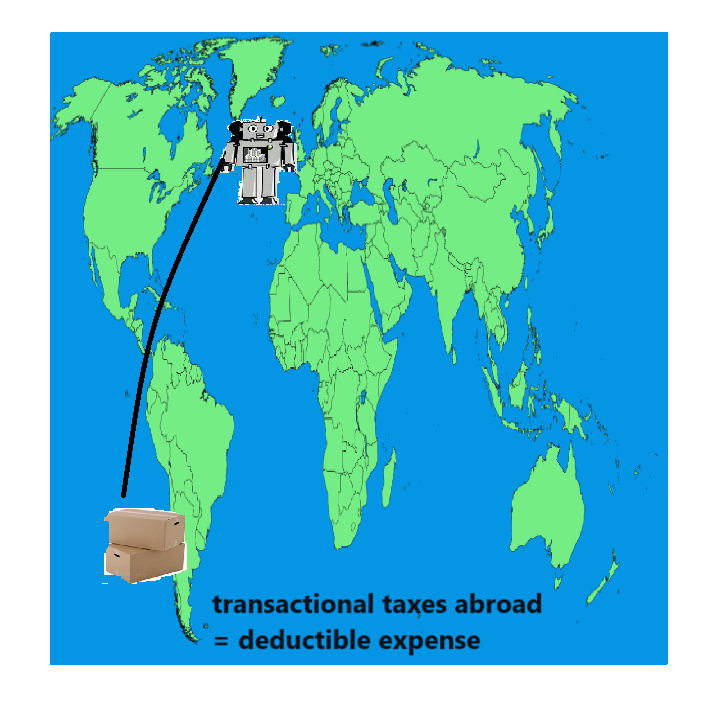Harrods (Buenos Aires) Ltd v Taylor-Gooby [1964] 41 TC 450, EWCA
Citation:Harrods (Buenos Aires) Ltd v Taylor-Gooby [1964] 41 TC 450, EWCA
Rule of thumb:Are transactional taxes paid abroad, a deductible expense from profits? Yes, where a company has to pay transactional taxes on its sales in a foreign country, then these can be deducted as an expense in their profits for the purposes of paying corporation tax in the country of their head office.
Judgment:
The facts of this case were that the company was operating a store in Argentina from headquarters in the UK. Even although corporation tax was being paid in the UK, and income tax in Argentina by employees, Argentina introduced a transactional tax on all businesses. The Court held that this transactional tax paid abroad was a deductible expense from corporation tax owed, `…the only question here is: was the money paid by the Company in settlement of its liability for Argentine substitute tax, “money wholly and exclusively expended for the purposes of the trade” which it carried on in the Argentine? In order to engage lawfully in its trading activities in the Argentine at all, whether or not it made a profit by doing so, it had to pay the substitute tax. That was the purpose for which the money was expended by the Company. None other is suggested. Why, then, is it not deductible? It is contended for the Crown that the Company paid the tax in its capacity as a taxpayer, not in its capacity as a trader. But with great respect to Lord Greene, MR’s judgment in the Rushden Heel Co’s case [see BIM37060], on which this contention was mainly based, this is merely playing with words. As pointed out by Willmer, LJ, this ratio decidendi was not adopted by the House of Lords in the same case and cannot, in my view, survive Lord Atkinson’s earlier criticism of a similar argument in the Lion Brewery case [5 TC 568], which Willmer, LJ, has already cited. You can always find some label other than “trader” to describe the capacity in which a trader makes any disbursement for the purposes of his trade. He pays rent for his business premises in the capacity of “tenant”, rates in the capacity of “occupier”, wages in the capacity of “employer”, the price of goods in the capacity of “buyer”. But if he has become tenant or occupier of those particular premises, employer of those particular servants or buyer of those particular goods solely for the purposes of his trade, the money which he has expended in any of the capacities so labelled is a deductible expense in computing the profits of his trade.’ Lord Diplock

Warning: This is not professional legal advice. This is not professional legal education advice. Please obtain professional guidance before embarking on any legal course of action. This is just an interpretation of a Judgment by persons of legal insight & varying levels of legal specialism, experience & expertise. Please read the Judgment yourself and form your own interpretation of it with professional assistance.

